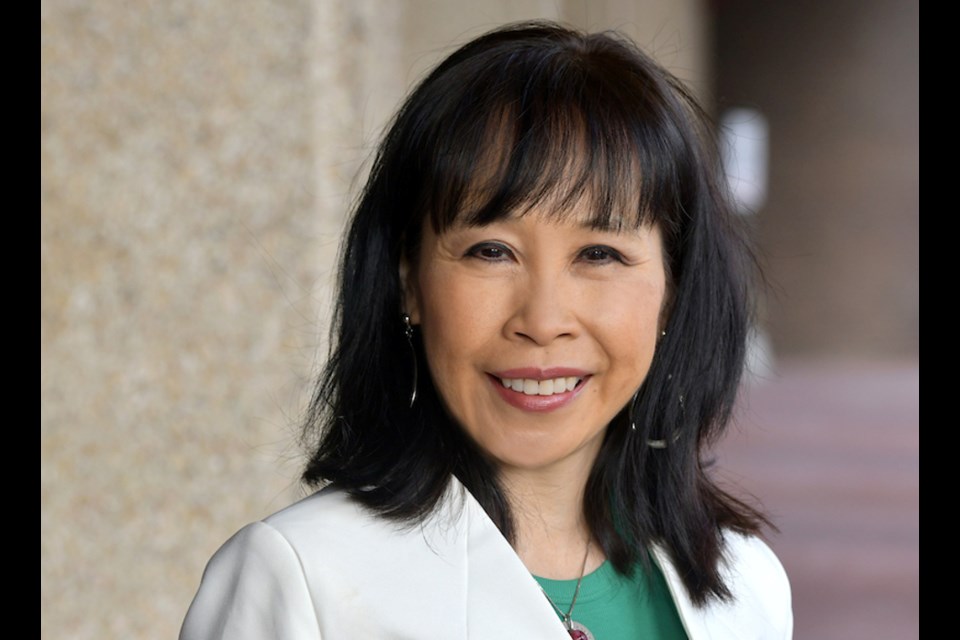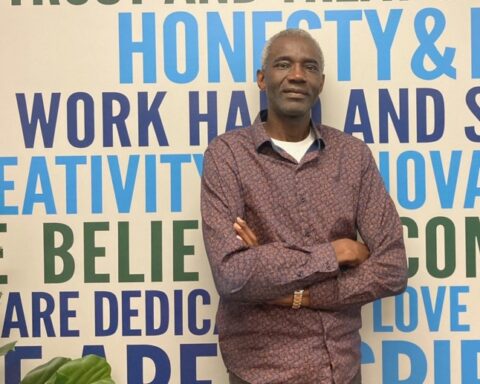The need for Asian representation in the curriculum to empower students and educators, lack of Asian representation among staff, low sense of belonging by Asian members and prevalence of colonial practices and procedures were highlighted in a recent report regarding anti-Asian racism in York Region District School Board (YRDSB).
University of Toronto’s Dr. Mary Reid and Wilfrid Laurier University’s Dr. Ardavan Eizadirad co-authored this report submitted to YRDSB.
This research study was driven by a critical question: “What are the lived experiences of Asian-identifying students, educators, community members, and staff in YRDSB?”
Based on the consultation with York region’s Asian staff, students, and community through surveys and focus groups, the two education researchers came up with recommendations to build YRDSB schools as “identity-affirming learning and working spaces for Asian students and staff.”
Participants shared “their vulnerable stories of being perpetually othered, chronically confused for other Asians, dismissed for leadership opportunities, treated as a stereotype, readily mocked and ignored, just to name a few examples.”
Survey results confirmed that almost 70 per cent of Asian students attend Markham schools, followed by 14.89 per cent in Richmond Hill and 10.66 per cent in Vaughan. Similarly, 50 per cent of educators who participated in the survey worked in Markham, 15.09 per cent in Richmond Hill and 13.21 per cent in Vaughan.
Last spring, associate professor Reid ran a professional development training session for the YRDSB board of trustees, highlighting the need to prioritize anti-Asian racism, considering 49 per cent of the student population identifies as Asian in this district. She added that the session elicited interest among the trustees to pursue a study.
“It was really a perfect opportunity to collect a large dataset capture not just the students perspectives, but also administrators and teachers to produce something concrete, reflecting the York Region. A lot of the findings that we found that emerged from our themes, corroborated with the literature out there and weren’t really surprising.”
Cecil Roach, associate director of education, equitable outcomes and school, was equally not surprised with the findings and instead wonders if the title of the study points out “how as a system we are complicit with anti-Asian racism.”
In light of the background behind this project, Roach added that the launch of the Dismantling Anti-Black Racism Strategy in 2021 had “resulted in questions around other forms of discrimination.”
Surprisingly, when the board started collecting data around hate and discrimination in the past, anti-Asian racism ranked very low, he added.
“However, we know that there’s under-reporting of all dimensions of hate and discrimination. At the same time, I think our agent, staff or even students felt that the pandemic brought to the fore this bubbling issue of anti-Asian racism, which always existed.”
Reid wants people to see this report as “not a critique on YRDSB and rather view it from a different perspective that they were brave enough to spotlight where anti-Asian racism was happening so that they can move forward and resolve as much as they could within their control.”
And she believes that irrespective of geographical distribution of population, everyone can learn from the experiences that these 1,325 participants shared.
The report recommends organizing professional development programs, mentorships, anti-Asian awareness campaigns, equity audits for leadership positions and policy reviews. It also suggests hosting community and healing spaces for Asian members, an advisory circle and ongoing consultations for identifying gaps and solutions.
About the recommendations, associate professor Eizadirad added that the voices of the research participants were expected to guide the recommendations. At the same time, the researchers “also wanted to add items such as reporting tools more specific to the York Region, including specific recommendations which were grounded in already existing York Region policies and practices.”
According to YRDSB, the third largest school district in the province, this report will inform YRDSB Dismantling Hate and Oppression Framework’s action items to be released this fall. The framework will “address racism, hate and discrimination with a specific focus on Islamophobia, anti-Asian racism, antisemitism, homophobia, transphobia, ableism, etc.”
He also highlighted that part of the board’s challenge is understanding that there might not be any red flags in students’ academic performance as captured through data, but if their experience is ridden with anti-Asian racism, then it “has work to do in this area because schooling is more than academic achievement, and people’s sense of well-being, including their mental health, are part of what we see as successful in terms of educational trajectory.”
_________________________________________________
This article was originally published on NewMarketToday.ca
Amrita is an NCM-CAJ Collective Member, journalist and content writer, with nearly a decade of experience in content development and journalism in three countries. She started her career as a journalist with a leading daily, The Statesman, in India. She has also led content and editorial teams for several web content management firms. Amrita served as a Communications and Content specialist for some non-profit organizations like the American Red Cross after her move to the U.S. Based out of Toronto, she continues to follow her passion by reporting on human rights violations, education, crimes, inequality and community engagement. Amrita holds a Post Graduate Diploma in Print Journalism from Chennai, India.





